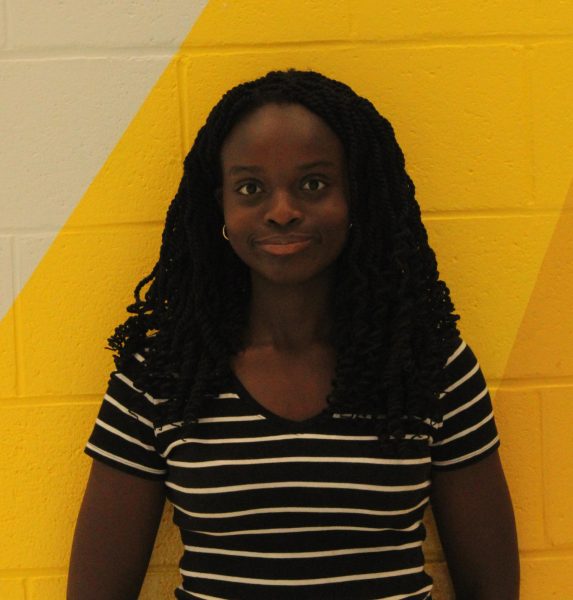Picture this: a 17-year-old high school student has just returned home from grueling hours of sports practice, club planning meetings, or theater dress rehearsals. Apart from having to take care of their younger siblings, they also need to make dinner, mow the lawn, and head to work at their after-school job. But just before they rest their head to sleep, homework jolts them awake.
The afterschool lives of students can often be jam-packed with at-home responsibilities, sports, homework, and extracurricular activities.
Moreover, many Oakton High School students struggle with a lack of prioritization and adequate time to complete their homework.
complete their homework.
A built-in daily study hall period could allow students to catch up on work quickly, complete homework assignments, and reduce the high burnout rate frequently seen in active students.
Genevieve Lacey (12) student at Oakton who has taken a total of 8 AP classes, reported spending 1–3 hours daily juggling homework from all of her difficult classes. In addition to a busy class schedule, Genevieve shared that she is also involved in theater, choral programs, Get Green, Environmental Club, several honor societies, and volunteers at the library and nature centers.
She reports frequently feeling stressed when faced with abundant schoolwork, especially from her harder classes that “require a lot of extra self-learning outside of school.”
For example, AP Bio is a class she says she is “going through content for that on [her] own, or just reviewing larger amounts of text and reading through for History or Gov classes just because of the pure amount of time it takes.”
Genevieve also shared that her biggest concern is that “a lot of people will arrive home after either sports practice, or in my case after rehearsal, and a lot of times people are pretty tired out and so getting started on homework typically happens later towards the evening and that might cause athletes or students participating in extracurriculars to stay up longer and really struggle with that lack of time that they have.”
Continuously working without having time to complete school assignments and take necessary breaks can lead to an increase in student burnout. The need to keep up with deadlines and responsibilities can easily overwhelm students and cause anxiety.
While having a built-in study hall can increase productivity, unrestricted free time could increase unproductivity, phone use, and distraction, especially with friends around. This could also lead to an unsatisfactory learning environment for students willing to use the time appropriately, as well as reduced time management skills all around.
Even with its various pros and cons, Oakton High School Principal Jamie Lane sees the daily study hall period as nothing but beneficial. For students who might begin slacking off if they have this forty-five-minute period every day, Ms. Lane highlights that “it’s all about how students maximize that time.”
She also commented, “Having shorter bursts of time can be beneficial because 90 minutes is a long time, but I think [with] 45 minutes—you can get more out of that time if it’s that shorter burst every single day.”
Even with these advantages and disadvantages, the main issue lies in a countywide policy. Ms. Lane shared that the “central office had mandated that we all move on to the same schedule and because of students taking academy classes at other schools, [so] we got shifted on to the 90 minute block for that return period.”
Even with the mandation, there’s still a possibility for change. According to Ms. Lane, “Principals have advocated for flexibility but so far I believe it’s being piloted in [McLean High School] this year to be able to see if we’ll be able to go back, and at that time we’ll have a conversation with staff and students before we make a decision if that’s the direction we need to go.”
There are several overall benefits and disadvantages of implementing this program, but the most important aspects are student opinion and the practicality of implementation.
For now, while Cougar Time is confined to block scheduling, Genevieve recommends “[prioritizing] activities and [prioritizing] homework, and a lot of times you can prepare over the weekend, but if you don’t have time then, just setting aside time for yourself before practices, after practices, whenever you have a free moment, working on your homework then.”







